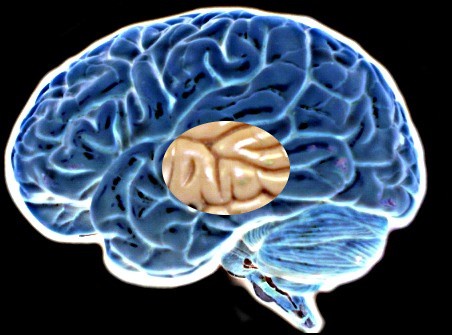Big human brains are found to be cause of a specific gene called ARHGAP11B which can only be found on Homo sapiens, according to a study led by geneticists in Germany. The gene is reportedly responsible for the relatively large size of our brains compared to other animals, especially mammals and other primates.
Why Humans Have Big Brains?

Through the journal EMBO Reports, the scientists from the German Primate Center (DPZ) - Leibniz Institute for Primate Research in Gottingen, Germany, published their findings on Tuesday, September 13, where they have arrived on the following theoretical and practical results:
- Human and chimpanzee cerebral organoids show that ARHGAP11B expression is necessary to ensure high levels of basal progenitor that describe the fetal human neocortex.
- Disruption of ARHGAP11B's function in human cerebral organoids decreases the size and number of basal progenitors down to chimpanzee level.
- Lack of ARHGAP11B yields to a significant decrease in the number of basal radial glia, which are unique cells found in developing nervous system amongst vertebrates.
A cerebral organoid, also called as brain organoid, is an anthropogenic or artificially grown miniature organ which resembles a natural brain.
In addition, basal progenitors or progenitor cells are reportedly 'offspring' of stem cells, which deviates to form special types of cells.
Neocortex Development
The study's authors concluded that ARHGAP11B is the sole reason why human brains are big. It is still unclear if the gene also exists in other animals, especially non-human primates. However, the authors claim it only exists in humans.
The new paper also consists of researchers from the Max Planck Institute for Molecular Cell Biology and Genetics (MPI-CBG) in Dresden, Germany, and the Hector Institute for Translational Brain Research (HITBR) in Mannheim, Germany.
According to Wieland Huttner of the MPI-CBG, the research team was able to create both human brain organoids and chimpanzee brain organoids, allowing them to answer the most crucial question concerning the gene, as cited by Science Daily.
Human Brain Evolution
As ancient or early humans faced new environmental challenges and evolved larger bodies, they also evolved bigger and more complex brains. The upsized brains allowed our ancestors to store and process a lot of information, as well as engage in symbolic social interactions in unfamiliar habitats, according to the Smithsonian Institution.
In addition, the modern human brain can also deliver out in split seconds and solve problems that fall under logical and abstract aspects, the institution adds.
In a separate study published in the journal Physiology & Behavior in 2018, researchers found that the size of the adult brain and its components among mammals, including humans, depend on the duration of neural development, a highly regular neurological process.
The researchers in the 2018 study attributed the grandmother hypothesis or grand mothering method as a contributor to human brain evolution.
The hypothesis indicates that mammalian grandmothers put infants under their care and into a unique social ecology, resulting in early neural development. These substitute guardian role occurs when a mammal parent has gone away in search of food or is not available under various reasons.
Related Article: 'Big Brain' Gene Led to Human Intelligence
© 2025 NatureWorldNews.com All rights reserved. Do not reproduce without permission.





